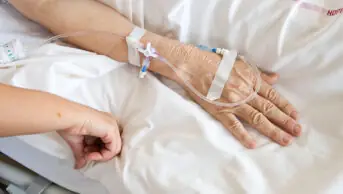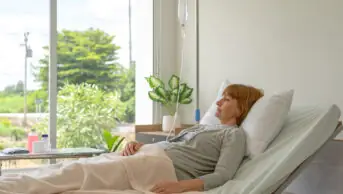Medicines play a critical role in ensuring that people at the end of their lives, and their carers, can manage symptoms, including pain, and remain comfortable at home.
But there is evidence that the systems supplying these medicines are difficult, complex and often lead to delays in vital care that leave patients in unnecessary suffering. This in turn can increase costs for the NHS if these patients then have to receive emergency care.
In this episode of The PJ Pod, executive editor Nigel Praities examines how this situation can be improved, looking at how medicines supply could be protected, the use of ‘just-in-case’ boxes and how specialist pharmacists can ensure that patients with life-limiting illnesses have effective and compassionate care.
Thank you to Tarun Nayyar, specialist clinical pharmacist at Birmingham Hospices; Sue Latter, professor of health services research at the University of Southampton; and Emyr Jones, consultant pharmacist and national lead for community healthcare in Wales for their input into this episode. Special thanks to patient Suzie*, who allowed us to record her consultation in her home.
More information regarding the Daffodil Standards mentioned in the episode can be found here.
This episode was produced by Geoff Marsh.
*The name of this patient has been changed and other details omitted to protect her confidentiality.
Disclaimer
Sue Latter’s research, the ActMed study, was funded by the National Institute for Health Research (NIHR). Her views expressed in the episode are not affiliated with those of the NIHR or the Department of Health and Social Care.
Want to hear more from The PJ Pod? Follow us on Spotify, Google Podcasts, Apple Podcasts or other popular podcast platforms to listen to our latest episodes.
You may also be interested in

Support for pharmacies providing palliative care urged as hospices get cash injection

Patient access to 24/7 palliative care medicines is ‘insufficient’, finds House of Commons-commissioned report
